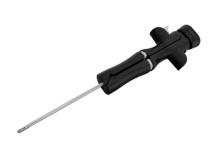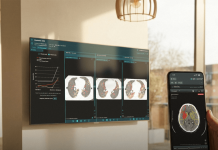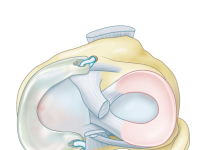Light field technology company Evolution Optiks has secured 510(k) clearance from the US Food and Drug Administration (FDA) for its LFR-260, which is claimed to be the world’s first light field-powered subjective tele-refractor. This follows the European CE mark obtained in March 2024.
The FDA’s clearance is based on the results from a multi-centre, open-label, 2×2 cross-over study involving 108 patients who underwent comprehensive routine eye examinations.
Related: Intuitive earns updated FDA labeling on da Vinci X, Xi for radical prostatectomy
In addition, the agency has established a new product category to distinguish the LFR-260 from conventional Class I 510(k) exempt manual refractors. The category also more accurately represents the capabilities of a light field-based refractor, stated the company.
The LFR-260 is a compact and portable design, with full digital operation that can be managed remotely via tablet, making it ideal for telemedicine applications.
Its technology includes integrated microlens arrays and ultra-high pixel density displays, allowing for the generation of ray-traced, multi-focal optotypes in real time.
Evolution Optiks’s QuadView technology is also a standout feature of the LFR-260. It enables the display of slightly different prescriptions simultaneously, allowing patients to choose the best vision correction based on their subjective experience, free from practitioner influence.
Evolution Optiks chairman Andreas Kusay said: “With both FDA approval and CE mark in hand, we are gearing up for the product launch of the LFR-260.
“With a combined population of close to 800 million people, the US and the European Economic Area are core markets with rapidly growing healthcare sectors, which offer abundant opportunities for forward-looking products and technologies.
“The flagship of our Optokare line is set to stir up the market and is a strong candidate to become the standard of modern refraction.”
Founded in 2014, Evolution Optiks’ focus has been on digital light technology, particularly on optometry instruments and neuro-optical screening and training devices.
Last September, Evolution Optiks initiated a prospective, single-site, randomised, controlled trial for its DeCon device.
This trial aimed to compare the performance of the neuro-optical testing device with videonystagmography technology in assessing human vestibular disorders.




